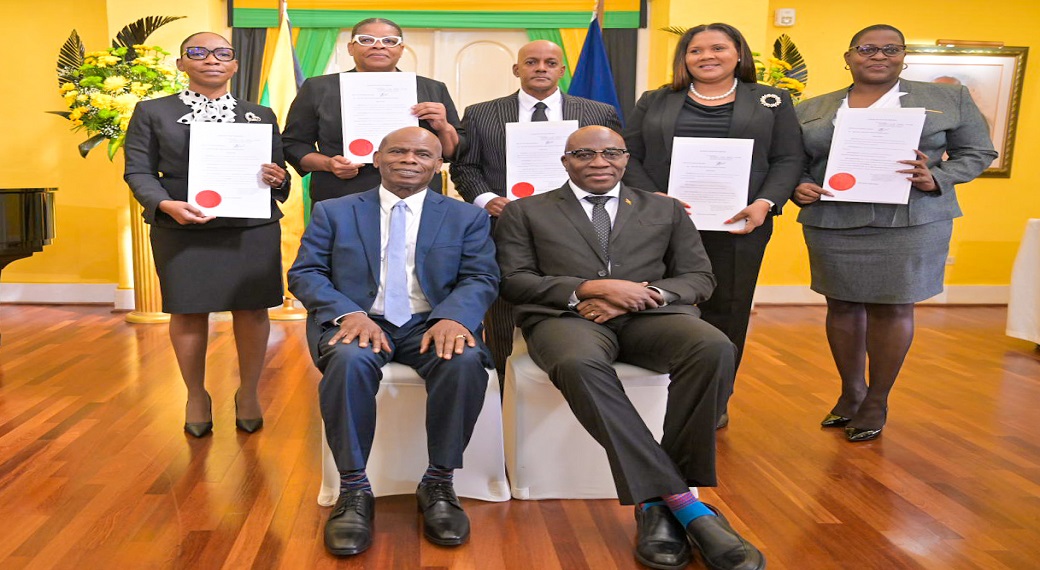

Deputy Chairman of the Jamaica Tourist Board (JTB), John Byles, says that a World Bank report on Jamaica during the COVID-19 pandemic explicitly highlighted tourism’s status as the lifeblood of the local economy.
Byles, in responding to what he said were erroneous and “contextual discrepancy” in suggestions that tourism’s contribution to Jamaica’s economy was merely 6.5 per cent of the gross domestic product (GDP), accounting for only 113,000 jobs, said the World Bank report is more “in line with the reality at hand”.
“The World Bank report on Jamaica during the heights of the COVID-19 pandemic, which started in March 2020, stated that, ‘The pace of Jamaica’s recovery will depend on the global containment of the pandemic and easing of travel restrictions with the rollout of vaccines," Byles stated in a release over the weekend.
“This is important given that the tourism sector contributes over 30 per cent of GDP and supplies a third of the country’s jobs, encompassing both direct and indirect contributions. Furthermore, the 2019 Planning Institute of Jamaica (PIOJ) results placed tourism’s direct contribution to GDP at 9.5 per cent, with significant spill-over effects across the economy. This contextual discrepancy is crucial to understanding tourism’s true economic impact and its potential as a growth driver,” added Byles.
He said while acknowledging tourism’s resilience and recovery from challenges such as hurricanes and negative travel advisories, there should now be a collective national discussion on examining what can be done to further optimise “this vital” industry, adding that the fact that Jamaica has an excess capacity of rooms and a proven ability to rebound from shocks, suggests immense potential.
He said there is no better proof of the capacity of the tourism industry to grow the economy than when the sector came to a halt during the pandemic, noting that as someone who had the privilege of representing the Private Sector Organisation of Jamaica (PSOJ) at the time, “I witnessed how the Bank of Jamaica” incorporated projected tourism recovery into their outlook to estimate the broader economic recovery.
“There was…, in my opinion, a direct correlation between tourism recovery and the recovery of the specific industries, such as agriculture, manufacturing and the wider economy, a fact that should not be lost in the moment. The question is, if not tourism, then what other sector can we promote that will sustainably grow the Jamaican economy with the speed needed? This example demonstrates the undeniable power of tourism,” Byles further argued.
“Should we not as a country support increasing advertising and airlift seat… support spend to strengthen this high-potential industry that can generate short-term inclusive economic growth? Tourism is not just a cornerstone of the current economy; it is a sector that could deliver significantly more if approached as a national priority," he argued.
Byles said the Ministry of Tourism, under the leadership of Edmund Bartlett, has done a commendable job in expanding the benefits of tourism for Jamaicans, noting, however, that to achieve its full potential—similar to how oil-rich countries like Dubai and the United Arab Emirates are leveraging tourism—"it must become a national policy and (be) supported by an all-of-Government approach."
He posited further that, “Tourism foreign direct investments (FDIs), particularly in the development of accommodations, represent an added value that critics or those who are hell bent on creating a false or misleading narrative are either ignoring or failing to mention. These investments contribute to infrastructure, employment creation and supplier linkages, all of which benefit local industries and drive long-term economic growth.”
Related News

Five members of the judiciary sworn in to serve in higher offices

Newsmaker: 'Poppyshow’; artistes, promoter trade barbs re big concert

High alert activated for missing 12-year-old from Portmore


